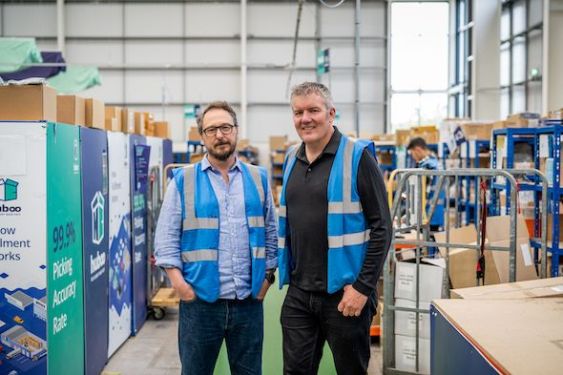A New Era for E-commerce
In the wake of the pandemic, consumers have digitized their lifestyles, leading to a surge in e-commerce sales. As a result, the need for efficient warehousing and shipping has skyrocketed. Most e-commerce businesses outsource this function, but alternatives are increasingly becoming necessary due to the high costs associated with services like Amazon’s ‘Fulfilled By Amazon’ (FBA).
Rise of E-commerce Fulfilment Startups
Several startups have emerged in recent years to address the growing demand for cost-effective e-commerce fulfilment. Among them is ShipBob, which has raised a total of $330.5 million; ShipMonk, with $365 million; Flowspace, with $46.5 million; and everstox out of Germany, with €23 million.
However, one startup that stands out from the rest is Huboo, founded by Martin Bysh and CIO Paul Dodd in 2017. Huboo has managed to raise a significant amount of funding despite a poor macro outlook for e-commerce. The company has now secured £29 million ($36.6 million) from existing investors, including Ada Ventures and Maersk, bringing its total equity raised to £122 million ($154 million).
Huboo’s Growth
With 10 warehouses across Europe and integration with sales from TikTok, Amazon, eBay, and Shopify, among others, Huboo has made significant strides in the e-commerce fulfilment market. The company’s expansion is not limited to the UK; it also operates in the Netherlands, France, Spain, and Germany.
Raising Funds
Huboo’s latest funding round was led by existing investors Ada Ventures and Maersk. In addition to this equity investment, Huboo has received further, unspecified, debt investment from HSBC and Blackrock. This influx of capital will enable the company to continue expanding its operations and improve its logistics infrastructure.
Comment from CEO Martin Bysh
In a statement, Martin Bysh said that raising funds despite a poor macro outlook for e-commerce was a testament to Huboo’s innovative approach and commitment to delivering efficient e-commerce fulfilment services. "We are proud of what we have achieved so far, and this latest funding round will enable us to continue growing and innovating," he added.
The Role of Fully Integrated Logistics
Fully integrated logistics linked with full-stack software has emerged as a key differentiator for startups in the e-commerce fulfilment market. This approach enables companies like Huboo to provide seamless and efficient services, from warehousing and shipping to customer service.
A Growing Market
As consumers become increasingly accustomed to on-demand services post-pandemic, the demand for cost-effective e-commerce fulfilment solutions is only set to rise. Startups like Huboo are well-positioned to capitalize on this trend, with their focus on innovative logistics and technology-driven solutions.
Key Players in the E-commerce Fulfilment Market
- ShipBob: Raised a total of $330.5 million
- ShipMonk: Raised $365 million
- Flowspace: Raised $46.5 million
- Everstox: Raised €23 million from Germany
Huboo’s Impact on the E-commerce Fulfilment Market
With its innovative approach to e-commerce fulfilment, Huboo is making waves in an increasingly competitive market. The company’s commitment to delivering efficient and cost-effective services has resonated with investors, who are betting big on its future growth.
As the demand for e-commerce fulfilment solutions continues to rise, startups like Huboo will play a crucial role in shaping the future of this industry. Their focus on innovative logistics, technology-driven solutions, and customer-centric services is poised to revolutionize the way businesses approach e-commerce.
Conclusion
In conclusion, the e-commerce fulfillment market is experiencing significant growth, driven by changing consumer behavior and increasing demand for efficient and cost-effective services. Startups like Huboo are well-positioned to capitalize on this trend, with their innovative approaches to logistics and technology-driven solutions.
The future of e-commerce fulfillment looks bright, and startups like Huboo will play a key role in shaping the industry’s trajectory.




